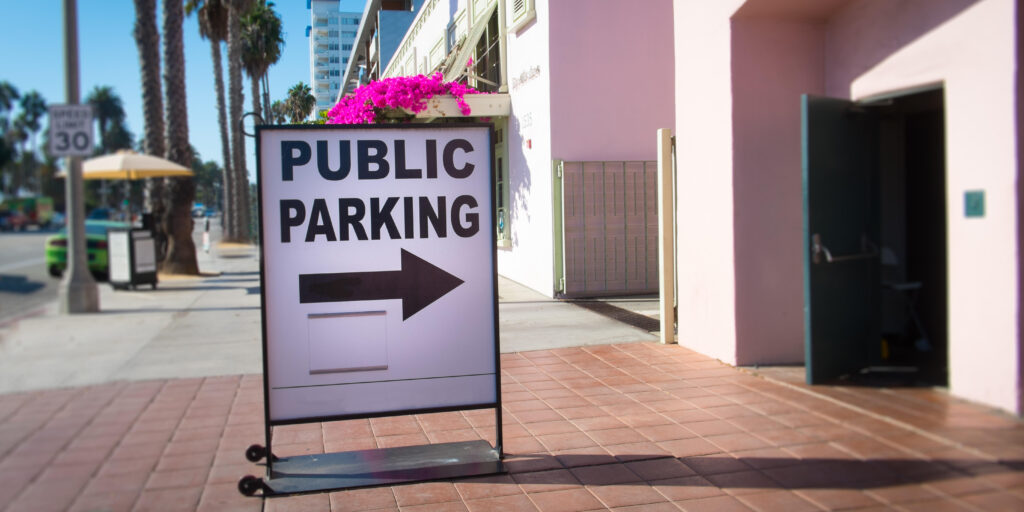The future of parking in the 15-minute city
At first glance, the 15-minute city spells the end for the parking industry. Designed specifically to cut emissions from private car usage, the city planning model calls for decentralized neighborhoods where residents can live, learn, shop and work without needing to drive. The 15-minute city would enable people to get anywhere they need to go in a quarter of an hour by walking, cycling or taking public transit.
A key tactic for cities implementing the 15-minute model? Cutting back on parking. Paris converted the parking lot of its Caserne des Minimes barracks into a public garden. Melbourne, Austrailia; and Amsterdam, among other cities, have converted curbside parking spaces into bike lanes. Cities across the United States are eliminating parking minimums.
The 15-minute city may lead to less usage overall, but that doesn’t signify the end of parking in cities. Instead, we can expect changes in the ways individuals and businesses use space—in some ways, the parking industry will be more important than ever for connecting car owners with places to park. Here’s how the future of parking might look in a 15-minute city.
Longer-term parking rentals
People living in 15-minute cities or neighborhoods won’t need cars to commute to work or make grocery runs, but that doesn’t mean they’ll get rid of their vehicles entirely. Residents will still need to travel outside their neighborhoods, and private cars will still be their most reliable and flexible option for getting around. Demand and availability for short-term parking may decline, but the need for longer-term parking rentals will rise if residents maintain a vehicle for longer trips.
Private automobile owners in 15-minute cities may actually need more parking, not less. Since their cars are parked more often than not, these drivers need secure places to keep their vehicles for longer periods of time. This is especially true for urban residents who rely on street parking, since the 15-minute city will replace curbside spaces with bike lanes and bus stops.
Fleet parking
On top of individual renters, mobility companies will need more parking spaces in the 15-minute city. The rise of car-sharing as an alternative to ownership means rental fleets will need to make vehicles widely and readily available to users. Following the rules of the 15-minute city, rental cars—and the spaces where they’re parked—should ideally be within walking distance.
Companies like Uber and Lyft will also need more parking in the 15-minute city. While these platforms don’t require parking spaces for vehicles, drivers need pick-up and drop-off zones to operate efficiently. These zones should be strategically located in areas easily accessible to both passengers and drivers. Ride-sharing companies may consider renting spaces to ensure their drivers have access to safe and convenient parking when not on the road.
Parking for electric vehicles
In the future, electric vehicles (EVs) will likely replace cars that run on fossil fuels. Parking needs to evolve likewise: people living in 15-minute cities will need affordable and readily available charging stations within walking distance of their homes. Car sharing is also likely to increase in coming years, with the possibility of one car being driven by multiple users per day. For EV rental fleets to stay charged and ready for on-demand use, companies need better coordination for parking, keeping track of which vehicles need time to charge and for how long. Future parking apps can connect individuals and companies alike with parking spaces that fit their specific time requirements.
Part-time parking lots
Multi-purpose parking lots may become more common as the 15-minute city gains traction. Replacing parking lots with residences and businesses improves walkability, a key feature of the 15-minute city but these projects take time and money. A shorter-term solution to make neighborhoods more livable is to have parking lots double as community spaces.
In the future, parking lots may be used in a manner similar to PARK(ing) Day, a global initiative. One day a year, people around the world convert curbside parking spots into public parks, art installations, outdoor cafes, and other community spaces. Similarly, cities can create hybrid spaces that serve as parking for commuters during peak hours and gathering areas during off hours, addressing the needs of both drivers and citizens who want more social venues. Efficiently using the real estate is critical.
Next steps for the 15-minute city vision
The shift toward sustainable transportation and less car ownership will mean fewer cars on the road but not the end of parking. Longer-term rentals, fleet parking rentals and multifunctional public spaces are just some of the ways existing parking can be adapted to meet the flexible infrastructure of a 15-minute city. As more neighborhoods transition to this model, car owners will need better platforms to connect with parking space owners. Drivers need a way to reserve parking spaces in their neighborhoods to cut back on automobile usage and participate in the hyper-local, walkable urban environment proposed by the 15-minute city model.
Jeremy Zuker is the CEO for North America of Spacer Technologies, a technology company that partners with property owners to uncover new revenue streams and optimize their assets.




















